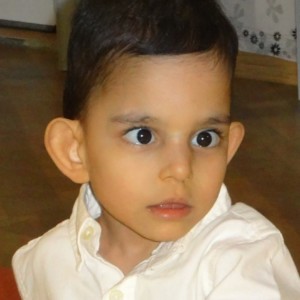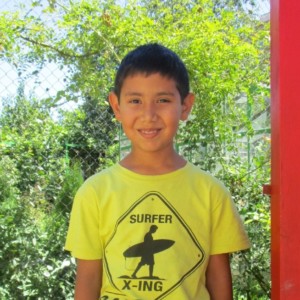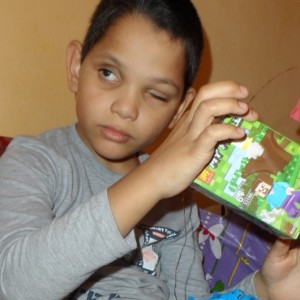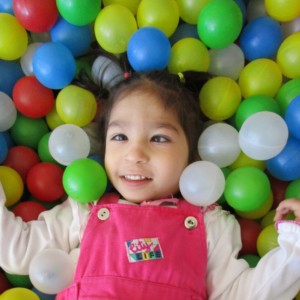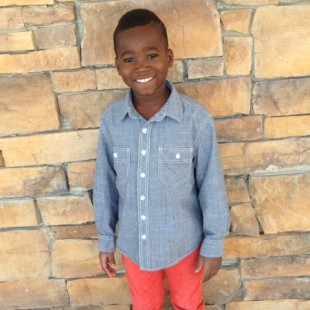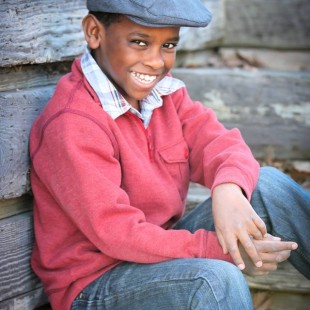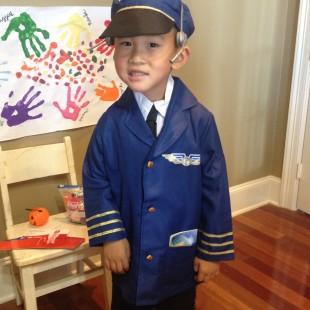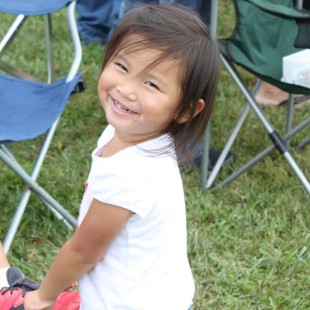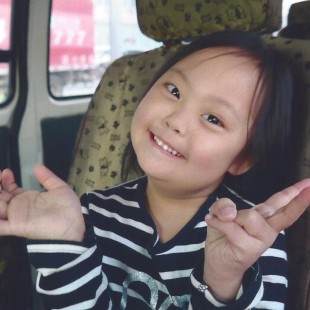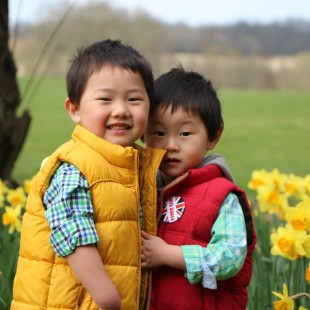Description
The England Grant of $2500 may be available for qualifying families.
Individualized grant funding for qualifying families may be available through our President’s Grant. Contact us for more details!
***UPDATE***
We have new information for sweet Emil born June of 2017 and who is diagnosed with spastic cerebral palsy and sever mental and physical delay. Our Bulgarian staff visited Emil and obtained the new information and photos November of 2023. They wrote the following:
Emil reacts when spoken to in a flattering tone, not to the words, but to the tone. The staff thinks he does not understand the words. He coos. During the day, he plays with toys, mainly musical ones that make sounds. He likes to listen to nursery rhymes. Follows bright light – such as Christmas lights. He does not pay attention and does not follow the TV. He has a sense of rhythm, he is tactful – you can see it in the video. He loves all kinds of sounds – listening to and making sounds.
Although Emil can eat from a spoon, he doesn’t like it. That is why the staff feed him with a pacifier. He is capricious when eating – he eats common pureed food. He prefers juice over water. He likes sweets foods and soups. He doesn’t like peas and cabbage. He often has constipation. When he doesn’t like a food, he doesn’t open his mouth, turns his head around.
Emil works with a rehabilitator two to three times a week. At admission to the center from the baby home, he was only lying down, but now he can be in a sitting position and stays seated for a long time. The right hand is spastic and therefore he mainly uses the left one. When they leave him on the ground, he turns from his back to his stomach and vice versa. They try to leave him sitting up as much as possible instead of lying down.
He doesn’t take any prescribed medications. He doesn’t like to have his hair washed – he grumbles. He doesn’t get sick often and easily gets over colds.
Emil has no specific regime. At night, he does not always sleep through the night – sometimes he wakes up, coos and then falls asleep.
In general, he has a positive emotional tone and is in a good mood, but sometimes he gets angry – he has a character 🙂 There is no aggression and auto-aggression. He accepts other children but does not interact with them. When he is in pain or when something is wrong with him, he signals by crying. He seeks attention. He recognizes staff voices.
Since Emil came to the center, there has been progress, especially in the motor skills – he is now sitting up on his own. He needs more work with a physical therapist. They think he can start standing up if he works harder with a physical therapist.
Personal impressions:
Emil is an extremely sweet little boy who needs love and personal attention. He can for sure advance more if he works with different specialists. He is calm and most of the time entertains himself but also loves personal attention and looks for it. I pray that this boy finds his forever family soon. For more information contact kathy@wiaa.org.
Video – November 2023
***UPDATE***
UPDATE for Emil from November 2023:
We received an update for little Emil from November of 2023. Emil was born June of 2018. The new information says the following:
- Diagnosis: Spastic cerebral palsy. Background retinopathy. Severe mental retardation. Condition after extremely low birth weight and periventricular leukomalacia on the left. Severe retardation in neuro-psychic development. Often suffering from viral infections. Decision of Doctor’s committee dated 14.07.22. for 3 years.
- Weight-11 kg, height-105 cm, Head circumstance-46.5 cm, chest circumference-50 cm.
- Motor skills: general and fine underdeveloped. Lying down, after stimulation he turns on his stomach. Stands alone in a sitting position and in a mobility aid. Has satisfactory head control. Uncoordinated and unfocused movements. A rehabilitator from the Center works with him hourly every day. After daily work with a rehabilitator, his health has improved. Holds in a sitting position and stands up to a sitting position independently with support. Gross motor skills are well developed, fine motor skills only with the left hand.
Gross motor skills developed – grasps large soft toys with both hands and follow with eyes. Makes eye contact attempts. He periodically visits an eye doctor and a neurologist. He does not take therapy. He eats pureed food.
Fine motor skills – only with the left hand, does not seek support in the right.
III. Psychological status.
- Perceptions and ideas: at a level below that required for his age Generally undeveloped due to young age.
- Attention: attention is unstable – A positive attitude towards him helps to attract his attention, makes eye contact. He plays with musical and light-up toys. Rather, he looks for objects that make sounds and are light, he has a favorite rattle that he plays with.
- Memory: Volitional memory is below age level. Auditory and visual memory developed for bright and moving stimuli Auditory is better developed. Attempt to maintain visual contact.
- Thinking: visual-active with a bright stimulus. In general, there is no indication.
- Imagination: low age group
- Intelligence: low age group
- Spatial and temporal orientation: lack of indication and feedback.
- Emotional development, prevailing emotional states, level of anxiety, depression, aggressiveness: Seeks eye and verbal contact briefly. Expresses basic emotions. Emotions are extreme – joy/hunger. Recognizes the team of the Center and seeks attention. Positive attitude towards the world around him. Smiles most of the time.
- Personal development, self-esteem, character traits, interests: low age group. Indications are missing.
- Orientation in interpersonal relationships with peers and adults: Seeks security and peace in adults. There is a general lack of orientation.
- Play activity, play skills, preferences (alone or with peers), participation in story and symbolic games: He already has favorite things and toys that he is looking for. He plays with a rattle and listens to children’s songs. He looks for musical toys and listens to fairy tales and children’s movies. Sometimes he hits his toys hard, but at this stage this unconscious aggression stops.
- Language and communication skills, communication and dialogue skills, expression of feelings in communication, use of non-verbal means in communication: Non-verbal and non-communicative. Lack of verbal contact. Persistent eye contact is observed, which is longer as the duration is not clear as to how much he recognizes. He reacts more quickly to verbal contact.
- Educational activity, knowledge, skills, competences, preferred subjects and activities, difficulties in the educational process: He does not attend kindergarten, due to his deteriorating health status, he has no potential to ever attend.
Sweet Emil needs a very special family who can handle his needs.
Video from July 2021:
****
Please meet little Emil. New photos and information are coming! Emil was born in June of 2018. His diagnosis is muscular hypotonia, Cerebellar hypoplasia and deformed toes. Emil needs a very special forever family who can care for all his needs. For more information contact kathy@wiaa.org. Grant funding is available for qualifying families.
For more information, please contact: Kathy@wiaa.org. You will be asked to complete a parent eligibility form before any file information can be released.
Please be aware that children on our waiting list may be under review by multiple families. Additionally, a child’s availability status may change on short notice. Please contact Kathy@wiaa.org for the most up-to-date status of a child.
Disclaimer:
WIA is not responsible for the medical information summarized here. Medical information sent by other countries may be inaccurate or incomplete. Prospective Adoptive Parents reserve the right to have medical information evaluated by a medical professional in the United States.









